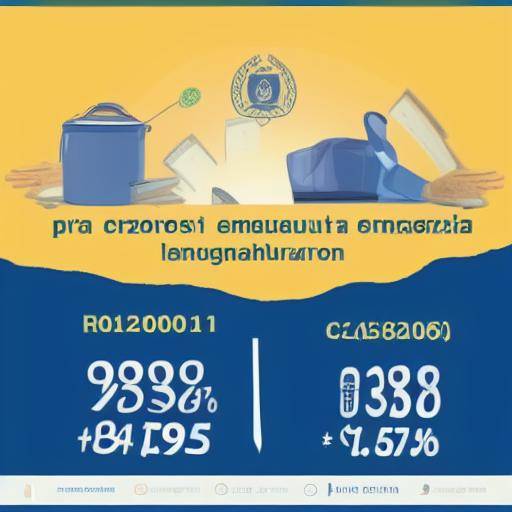
Financial stability is a fundamental pillar for the well-being of families. Within this context, the credit score acquires outstanding relevance, as its impact transcends beyond individual financial transactions. In this article, we will explore in detail the impact of a good credit score on family finances, from its historical importance to its influence on everyday financial decisions. We will discover how discipline and continuous improvement are essential components to optimize this financial indicator and ensure a solid basis for the economic well-being of families.
History and Background
The concept of credit score has its roots in the need to evaluate the credit solvency of individuals and families. Throughout history, this indicator has evolved from more rudimentary evaluation systems to sophisticated credit score models used today. The first documented reference of a credit score system dates back to the nineteenth century in Europe. At that time, merchants used very simple methods to evaluate the financial reliability of their customers.
Over time, the need to assess people ' s capacity to pay became more evident, leading to the development of more developed systems. In the United States, the establishment of credit reporting agencies in the early twentieth century laid the foundation for the modern credit score system. Since then, various companies have refined their credit assessment methods, incorporating factors such as payment history, debt levels and credit behavior.
The credit score has experienced significant evolution, from being a tool limited to a widely recognized as a determinant in financial decision-making. Its influence has expanded to the family sphere, influencing the ability to access loans, interest rates, and even the quality of life of families. Currently, credit score is a crucial factor in family financial planning, influencing the ability to achieve long-term goals and ensure a stable economic future.
Detailed Analysis
The impact of a good credit score on family finances is multifaceted. On the one hand, a healthy score provides access to better credit conditions, such as loans with favorable interest rates, allowing families to access housing finance, education or other essential needs. In addition, a good credit score can be decisive in the ability to secure leases, public services and even employment, as many companies consider the credit history when assessing the suitability of candidates.
Financial discipline plays a crucial role in building and preserving a good credit score. Maintaining responsible payment habits, avoiding over-indebtedness and properly managing credit lines are key practices in strengthening this indicator. Financial discipline is not only limited to credit management, but covers budget management, savings and investments, creating an enabling environment for family economic growth.
In this regard, the continuous improvement of the credit score is an achievable goal through the implementation of sound financial strategies. Regular monitoring of credit history, correction of possible errors and adoption of responsible financial behaviors are necessary steps to raise credit rating. Similarly, the diversification of credit sources and the prudent management of debts contribute significantly to the sustained improvement of credit score.
Comprehensive review
The practical application of a good credit score in family finances is reflected in the ability to access favorable financial products. In a context where economic stability is crucial to the well-being of families, an optimal credit score can provide security and tranquility, opening opportunities to acquire relevant assets, such as housing or automobiles, through favorable credit conditions. Similarly, a sound rating can act as a backup in unforeseen situations, offering the possibility of obtaining funding in times of emergency.
The existence of good credit score is a determining factor in long-term financial decision-making. By having a solid credit history, families can plan their future with greater confidence, establishing ambitious financial goals, such as children's college education, starting their own business or a comfortable retirement. The availability of credit at low rates ensures that such targets are attainable without compromising family financial balance.
It is essential to note that the credit score not only affects opportunities for access to credit, but also influences the conditions under which it is granted. A high score not only opens doors to finance, but also carries more favorable conditions, such as lower interest rates and more flexible payment periods. This reality translates directly into short- and long-term relief for family finance, meaning significant savings in borrowing costs.
Comparative analysis
Financial discipline and continuous improvement of credit score are closely intertwined. The adoption of responsible financial practices, such as timely payment of debts, low credit card balances and avoiding multiple credit lines at the same time, are manifestations of financial discipline that directly affect the improvement of credit score. In turn, the continuous improvement of the credit score depends on maintaining healthy financial habits over time.
It is important to note that, in the current world, access to information and resources greatly facilitates the task of improving the credit score. From online monitoring tools to expert advice, options to take control of the financial situation are abundant. Financial education also plays a key role in the formation of sound financial habits, providing families with the tools necessary to effectively manage their resources and optimize their credit scores.
Practical Tips and Accessible Recommendations
Here are some practical tips for optimizing credit score and strengthening family finances:
- Constant monitoring: Keeping regular track of the credit history allows detecting possible errors or fraudulent activities, providing the opportunity to correct them in a timely manner. - Pay on time: Establish reminders or schedule automatic payments to avoid delays in fees, which is crucial to maintain a healthy credit score. - Keep low balances: Try to keep credit card balances below 30% of the available limit, which shows prudence in credit management. - Create a diversified history: Including different types of credit, such as auto loans or mortgages, can contribute positively to the credit score by showing responsible management of financial obligations.
Conclusions
In short, the impact of a good credit score on family finances is undeniable. Financial discipline and constant improvement of the credit score not only open doors to favourable financial opportunities, but also provide peace and security to families in unforeseen situations. The economic stability that provides a solid credit score is a foundation for the achievement of long-term financial goals, ensuring a prosperous and stable future for families.
Frequently asked questions
What is a credit score and how is it calculated?
The credit score is a numerical indicator that reflects a person's credit solvency. It is calculated based on several factors, such as the payment history, the level of indebtedness, the duration of the credit history, the type of credit used and the new requests for credit.
How does a bad credit score affect family finance?
A bad credit score can limit access to loans and mortgages, as well as increase interest rates for available loans. In addition, it may make it difficult to obtain rental contracts or public services. In short, it can have a significant impact on the ability of the family to achieve its financial goals.
What is the role of financial discipline in building a good credit score?
Financial discipline involves maintaining responsible financial habits, such as paying debt on time, avoiding excessive indebtedness and prudently managing credit lines. These habits are fundamental to strengthening and preserving a good credit score.
How can I improve my credit score if I already have a negative credit history?
Improvement of the credit score requires time and effort, but there are measures that can help, such as resolving outstanding debts, keeping low balances on credit cards and avoiding the opening of new credit lines. In addition, the correction of errors in the credit report and the responsible management of financial obligations contribute to the gradual improvement of the credit rating.
What impact does a good credit score have on long-term family financial planning?
A good credit score provides families with access to loans with favourable interest rates, which facilitates the acquisition of important assets, such as housing or automobiles, and allows the planning of long-term financial targets with greater confidence and stability.
What practical steps can I take to strengthen the credit score effectively?
To strengthen the credit score effectively, it is important to regularly monitor the credit history, pay the debts on time, maintain low credit card balances and diversify credit history. In addition, financial education plays a crucial role in the adoption of responsible financial practices.
Conclusion
The credit score has a significant impact on family finance, which goes beyond the scope of daily financial transactions. Financial discipline and continuous improvement of credit score are fundamental pillars to ensure a stable and prosperous economic future. By adopting responsible financial practices and seeking opportunities for improvement, families can maximize the potential of a good credit score and build a solid foundation for the realization of their long-term financial goals.






















































